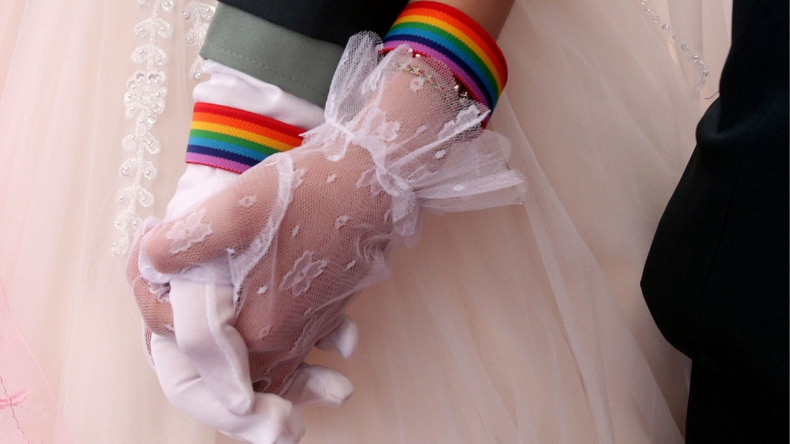On 6 September 2018, India abolished article 377 of the Indian Constitution that had made homosexuality a criminal offence in India.
Two years later, what is India’s stance on accepting the LGBTQ+ community?
“I appeal to all governments and societies to promote the values of tolerance and respect for diversity, and to build a world where no one has to be afraid because of their sexual orientation and gender identity.” – UN Secretary-General António Guterres
On 25 October Monday, the union government told the Delhi high court that decriminalising sexuality has nothing to do with same-sex marriage, and a valid marriage can only occur between a biological man and a biological woman.
What is the case?
In the first petition, Abhijit Iyer Mitra and three others have contended that same-sex marriages are impossible despite the Supreme Court decriminalising consensual homosexual acts and sought a declaration to recognise them under the Hindu Marriage Act (HMA) and Special Marriage Act (SMA).
There were two other pleas: one filed by two women seeking to get married under the SMA (Special Marriage Act) and challenging provisions of the statute to the extent that it does not provide for same-sex marriages.
The other was filed by two men who got married in the US but were denied marriage registration under the Foreign Marriage Act (FMA).
Another petition seeks to allow a foreign-origin spouse of an Overseas Citizen of India cardholder to apply for OCI registration regardless of gender or sexual orientation.
The final hearing is due on 30 November.
These are an array of cases that challenges the government’s pro-queer stance.
The government’s stance
The solicitor general of India argues that the 2018 supreme court judgement merely decriminalises homosexual life; ‘nothing more, nothing less’ – is a narrow reading of that landmark decision.
He also argued that statutory provisions of the law could not recognise a same-sex union, given that such a marriage makes traditional roles redundant.
“Despite the decriminalisation of Section 377 of the Indian Penal Code, the petitioners cannot claim a fundamental right for same-sex marriage being recognised under the laws of the country,” the Centre’s affidavit read, as per Bar and Bench.
The Centre disputed that the right to marriage is an individual’s right to privacy. They added that while marriage may be between two private individuals, it profoundly impacts their personal lives.
It is submitted that marriage, as a general concept, is also nationally and internationally recognised as a public recognition of relationship with which several statutory rights and obligations are attached.
The Centre also told the court Western decisions sans any basis in Indian constitutional law and jurisprudence cannot be imported in the Indian context, as per Live Law.
Why such an anti-queer stand after the landmark judgement?
The BJP-led Centre has been trying to bring in a Uniform Civil Code under the pretext of extending equal marital rights to all Indians. They are intended on discounting the same fundamental rights of homosexual couples.
This perspective stands as dictated by the heterosexual norms, was propelled back in the limelight as the Delhi High Court dealt with a clutch of petitions relating to same-sex marriages.
The Constitution has recognised the need to protect and encourage religious and ethnic minorities by introducing special provisions.
Then the Centre’s insistence on keeping sexual minorities out of the fundamental laws governing every other Indian is baffling, no matter how you see it.
Even though there is little hope that the Centre may change its position, as it continues to be guided by heterosexual society, the queer community has been pinning its hopes on the judiciary.
They must do more and own up to the radical promise of the SC ruling
What is no longer criminal deserves the space to flower and shape its destiny. Marriage is entwined with emotional as well as material realities. All individuals, straight or queer, being equal in the eyes of the Constitution, it is only natural that the queer community will demand such legal recognition.












